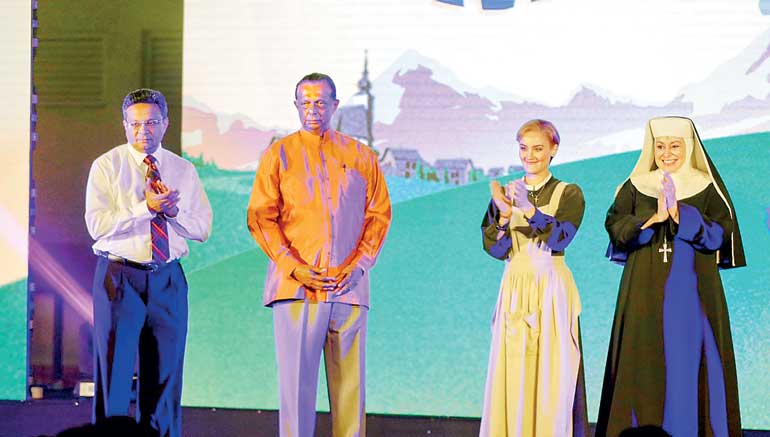Wednesday Feb 25, 2026
Wednesday Feb 25, 2026
Tuesday, 13 February 2018 00:00 - - {{hitsCtrl.values.hits}}

Since 2009, Sri Lanka has witnessed far-reaching development when it comes to the hospitality and travel industry. Consider the fact that there has been a great deal of investment from abroad and here at home with regard to general infrastructure – think hotels, motels, apartments, and the development of the informal sector. To put all of this into raw numbers, the facts speak for themselves; at present, the current room capacity of 3- to 5-star hotels is 5,367 and will increase by a whopping 3,585 by 2021 to total 8,952. Moreover, by 2020, there will also be an increase in apartments: a corollary of the tourism boom, perhaps.
A realistic but ambitious prediction at this juncture is that Colombo has the opportunity in future to be seen as a hub for entertainment; with the ever-burgeoning investment and development of tourism here, this could mean that tourism will be the number one foreign exchange earner in the near future. It is at this stage, we should turn our attention to another very important aspect with regard to this boom in tourism, which is the contribution and investment in the tourist experience.
Indubitably, Sri Lanka has many diverse attractions that appeal to a wide spectrum of travellers from across the world. While we develop and further sustain the natural resources and attractions that are bountiful from a local standpoint, it is also important to consider expanding the local offering when it comes to the aspect of entertainment.
Commenting on this, Sri Lanka Tourism Promotion Bureau Managing Director Sutheash Balasubramaniam stated: “The current activities in Colombo are limited to dining and shopping; what may be desirous is to proffer more discerning entertainment options: this can be a memorable experience for high-spending tourists with an interest to visit and explore Sri Lanka.”
With Sri Lanka Tourism committing to achieve five million tourists by 2025, the former establishment has – as part of a long-term plan – identified strategic measures for the implementation of best practices to ensure that the local tourism industry continues to grow in a sustainable manner. While the government initiates the policy framework, and provides an advantageous environment for growth, it is the responsibility of all stakeholders to work towards achieving these goals that will set the pace to bolster Sri Lanka’s tourism offerings.
Embracing this bold plan to cater to an ever-increasing number of tourists with disposable income – the focus here is on a growing young Asian middle class with high income – coming into Sri Lanka. Consider the iconic production of The Sound of Music as an industry first, especially when it comes to assisting national efforts to strengthen and boost the tourism industry. It must be stated that if Sri Lanka’s tourism industry is to become a strong economic driver by 2025, it is mandatory that the private and public sector collaborate in order to achieve the desired results.